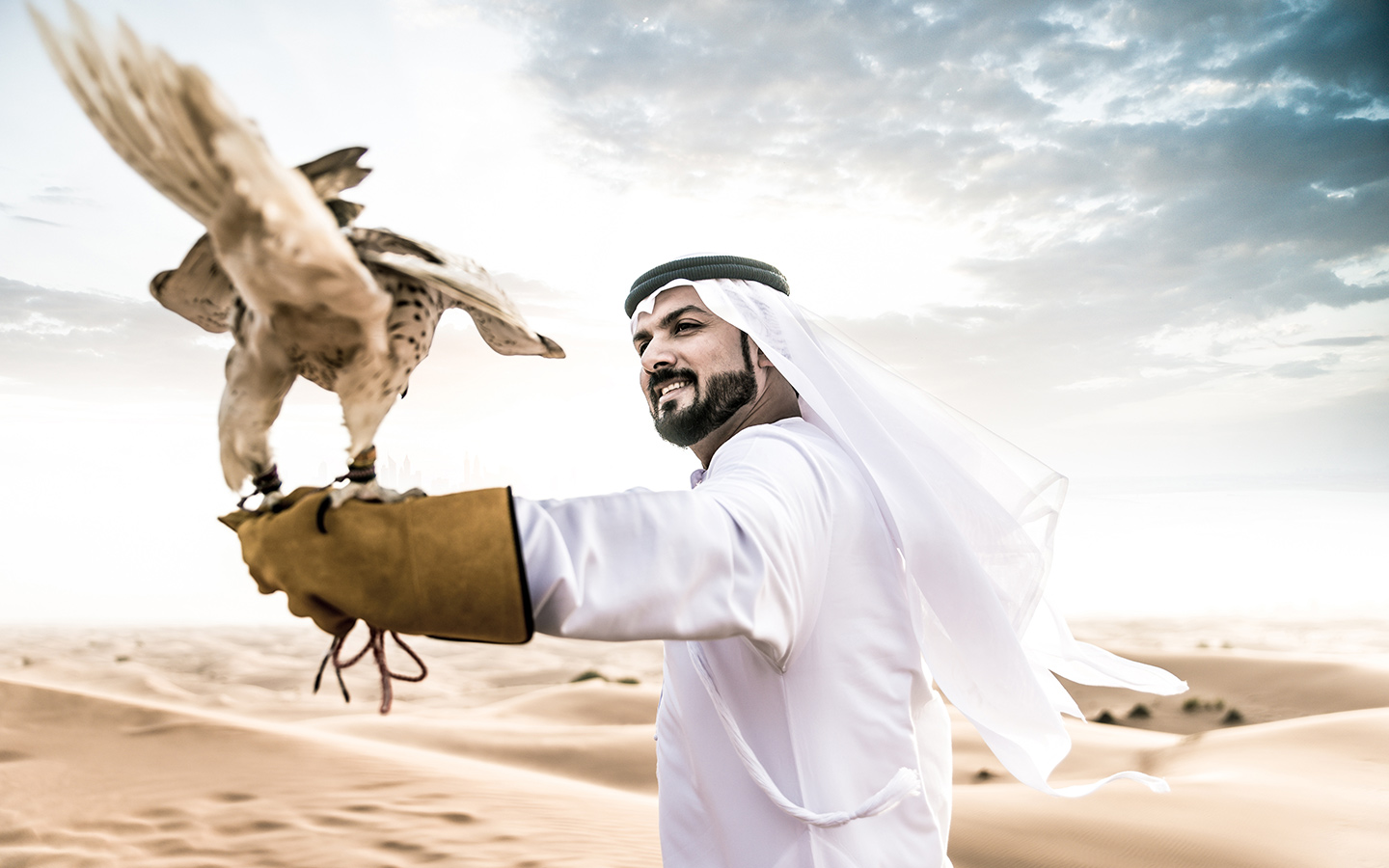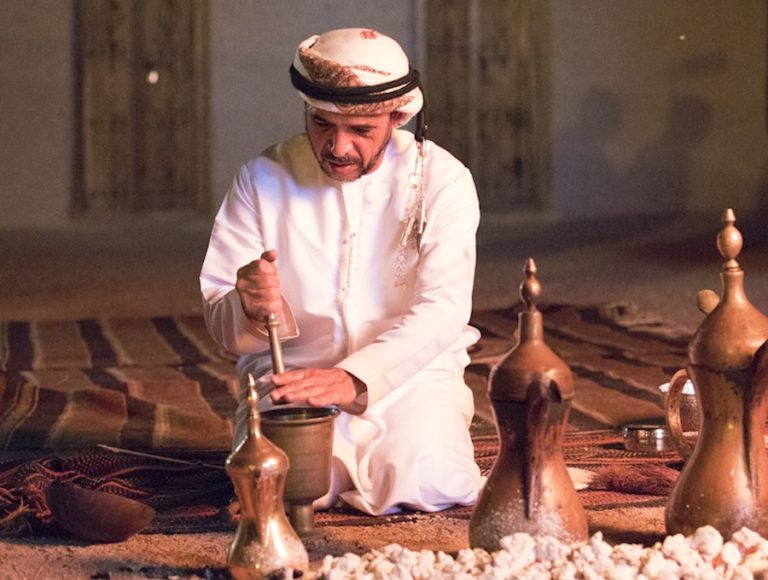Culture of the United Arab Emirates
The United Arab Emirates (UAE) is a fusion of ancient Arabian heritage and contemporary dynamism.
A Fusion of Past and Present
The UAE’s cultural identity is beautifully woven from the threads of Islamic traditions and Bedouin customs. This historical foundation provides the stage for the country’s transformation. Traditional values coexist seamlessly with a progressive mindset, creating a truly captivating contrast.
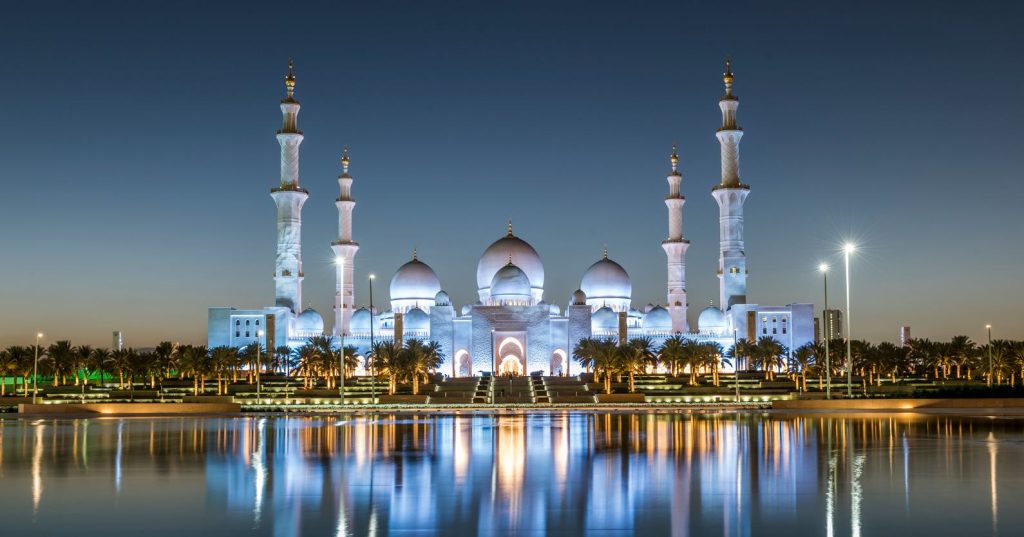
One of the most striking aspects of the UAE is the harmonious coexistence of architectural styles. Majestic forts and wind towers stand proudly as testaments to the nation’s heritage, while futuristic skyscrapers pierce the skyline. This effortless blend of past and future reflects the UAE’s commitment to preserving its history while embracing a vision for progress. It’s a powerful symbol of the country’s cultural identity.
Core Values: Hospitality, Respect, and Family
The core cultural values of the UAE revolve around family, respect, and hospitality. Offering warm hospitality is paramount, with guests treated almost like extended family. Respect for elders and those in positions of authority is deeply ingrained in Emirati culture.
These values translate beautifully into social customs and etiquette observed in daily life. Politeness is key, especially when interacting with elders or guests. Traditional greetings like handshakes and the Arabic salutation “As-salamu alaykum” (peace be upon you) are commonplace. Despite the influence of modernity, Emiratis have successfully preserved their cultural heritage, striking a remarkable balance between tradition and progress. This unique blend fosters a strong sense of unity and a distinct cultural identity within the UAE.
A Culinary Journey
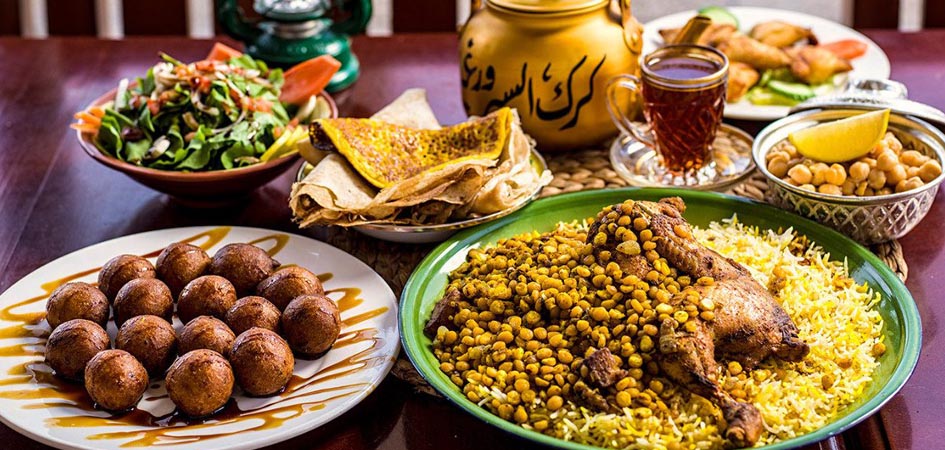
Food and culture are intricately intertwined in the UAE, showcasing a delightful fusion of Arabian, Persian, Indian, and other culinary influences. Emirati cuisine boasts traditional dishes like Harees (a hearty wheat and meat porridge) and Machboos (a flavorful rice dish). These delicacies are often prepared for family gatherings, religious festivals, and national celebrations, reinforcing a sense of community and cultural identity.
Sharing meals is a cornerstone of Emirati culture, symbolizing not just sustenance but also hospitality and community spirit. The street food scene, featuring Shawarma and Falafel, reflects the influence of the diverse expatriate population. Additionally, customs like serving Arabic coffee and dates to guests highlight the significance of food in social interactions and cultural traditions.
Art and Literature: Expressions of a Nation’s Soul
The UAE’s art scene is a blend of traditional and modern forms, mirroring the nation’s cultural evolution. Galleries and exhibitions showcase the artistry of pottery, weaving, and jewelry-making alongside contemporary expressions. Literature flourishes as a powerful artistic medium, often drawing inspiration from the vast desert landscapes and the Bedouin way of life. Poetry, in particular, holds a special place in Emirati culture, capturing the essence of the land and its people. Recognizing the significance of art in preserving and sharing Emirati culture, the government actively promotes these artistic expressions.
Celebrations and Festivals
The UAE observes a calendar of cultural and religious festivals throughout the year. National Day, celebrated on December 2nd, commemorates the unification of the Emirates. It’s a joyous occasion marked by parades, cultural shows, and fireworks displays that showcase the nation’s heritage. Religious festivals like Eid al-Fitr and Eid al-Adha are celebrated with immense enthusiasm, bringing Emirati families and communities together. These festive occasions serve as a time for celebration, reflection, and a chance to reconnect with cultural roots and share them with the world.
Falconry and Camel Racing: A Legacy Enduring
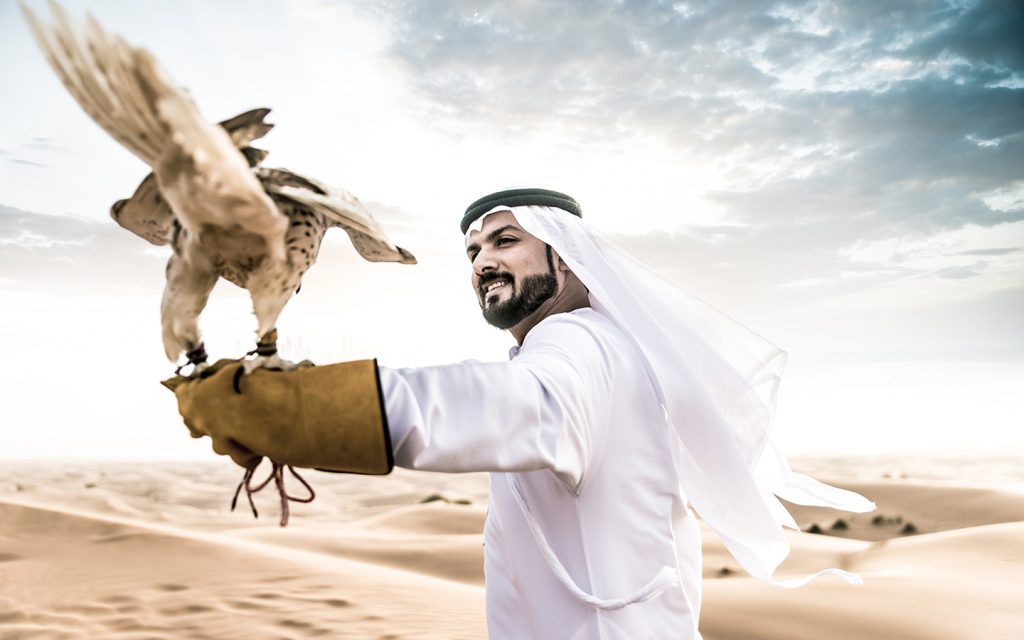
In the UAE, falconry and camel racing transcend the realm of mere sports. They are deeply embedded in the country’s cultural heritage, with traditions dating back thousands of years. Falconry fosters a deep connection with nature and embodies the Emirati way of life, marked by respect and admiration for these majestic birds. Similarly, camel racing celebrates the Bedouin traditions and brings communities together in a festive atmosphere. Both activities continue to be popular cultural events, reinforcing the UAE’s connection to its past.
Emirati dance: The Yowla Dance
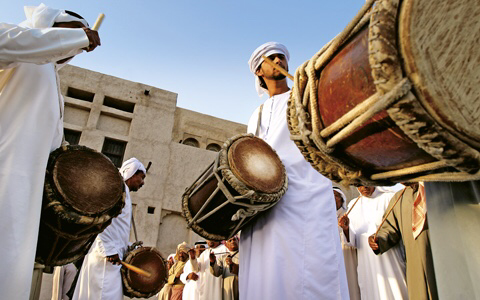
The UAE’s rich heritage is vibrantly expressed in its performing arts, and the Yowla (or Yola) dance stands out as the most recognizable folk dance in the country. Traditionally performed by men, the Yowla is a powerful display of unity and martial prowess.
Imagine rows of Emirati men, linked arm in arm, each holding a stick and chanting verses of poetry. Their synchronized movements tell the story of a battle, from the initial confrontation with the enemy to the exhilaration of victory. The dance steps themselves mimic these stages, conveying the intensity of the fight and the joy of triumph.
Interestingly, the Yowla was originally performed with actual swords, a testament to its deep connection with the Bedouin warrior tradition. Today, sticks have replaced the swords, but the symbolic essence of the dance remains.
Witnessing a Yowla performance is a captivating experience that transports viewers back to a time of desert nomads and fierce battles. It’s a powerful reminder of the UAE’s rich history and the enduring spirit of its people.
Conclusion
The UAE is a land of beautiful contrasts, where ancient traditions combine with modernity. From the heartwarming hospitality to the vibrant displays of art and dance, every aspect of Emirati culture reflects a deep respect for the past and a vision for a progressive future. Whether you’re enthralled by the architectural wonders or captivated by the rhythmic chants of the Yowla dance, the UAE promises an unforgettable cultural experience. So, come explore the enchanting tapestry of the UAE and allow yourself to be surprised by its charm.

